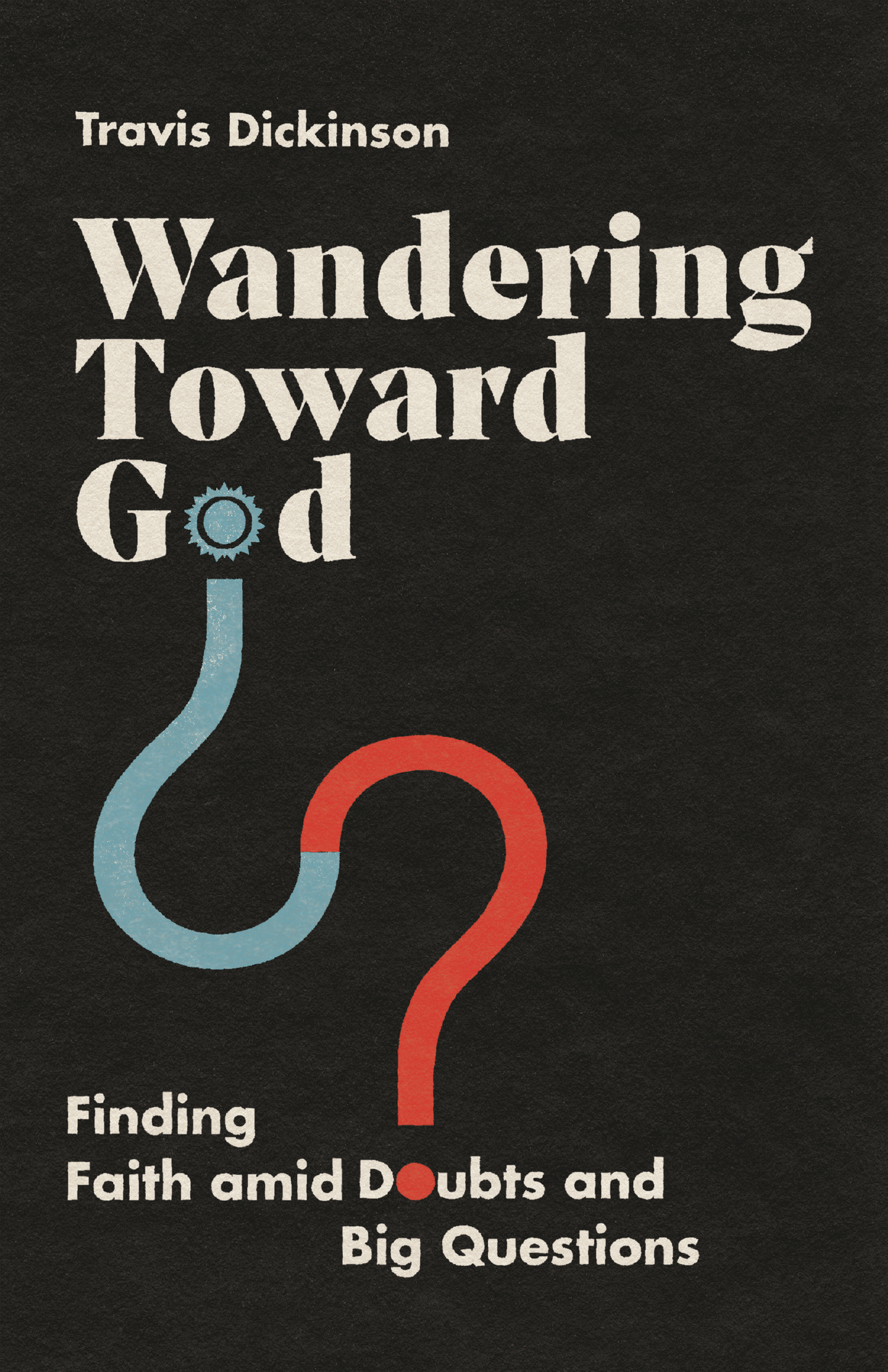Christians sometimes find themselves in the grips of doubt. Unfortunately, people (especially our Christian youth) can’t always find a safe place to doubt their faith. Too often, doubt is seen as sin or a kind of rebellious attitude. But many experience an honest struggle of doubt they can’t seem to shake. A very consistent theme among the deconverted is that they had doubts and no one was willing to help.
I once significantly doubted my faith. For me, it happened in seminary of all places. I realized that I didn’t have good reasons to believe that Christianity was true, and doubts came crashing in. I leaned into those doubts and found answers. Catch this: it was because of my doubts that I was led to truth, and my faith grew as a result. So, somewhat ironically, doubting faith, for me, led to greater faith.
Doubt Defined
Okay, so what is doubt? At its core, doubt is the intellectual tension we experience when a belief seems like it might be false. This happens when we realize, like I did in Seminary, that we don’t have good reason for a belief or when we encounter an objection that seems to defeat our belief. Suddenly, something we belief starts to seem like it might be false. We are in throes of doubt.
Now, let’s get one thing straight from the outset. It’s OK to doubt your faith but this doesn’t mean doubt is the goal at which we’re aiming. Doubt is not the destination. Doubt is a mere stop—albeit an important stop, I suggest—along the journey of faith. Contrary to some celebrity pastors and hipster online personalities, doubt and deconstruction is not where we want to end up. The goal is to know truth and place faith accordingly, even if we change our minds on some things. Doubt provides an opportunity to lean in and ask the deep and difficult questions to address those doubts.
With this in mind, here are five reasons why it’s OK to doubt your faith:
1. Doubt is a normal part of the journey.
To point out the painfully obvious, we, as humans, are imperfect. We have our good moments and our bad moments. We have our triumphs and our struggles. And it’s okay to struggle from time to time. We all do. Paul describes our knowledge as a dim reflection of how things really are (1 Corin. 13:12). We won’t have it all figured out, and it’s just part of the deal to experience doubts as we attempt to understand. It’s a normal part of the journey.
Here's what I say in my new book, Wandering Toward God:
If you…are struggling with doubt, I want you to know that you are normal! Hear this: You. Are. Normal. The honest struggle of questions and doubts is not sin. You are not failing. You are courageous—probably more courageous than others who act like they have it all figured out. I respect you. It’s most likely that you are doubting your faith precisely because you are intellectually honest and are seeking truth rather than mere acceptance by your peers. This can be a lonely place, but please hear me: You are not alone! Some of the most ardent defenders of the Christian faith wandered toward God with doubts and big questions.
2. We don’t typically choose to doubt.
It’s OK to doubt our faith because it is not typically a choice we make. Many people don’t want to doubt. They just do. They have some intellectual tension they are struggling to resolve. It’s something that happens to us similar to experiencing fear or affection. We don’t choose these things even though we make many choices in what we do about them. When we find ourselves with questions we can’t answer, we often can’t help experiencing some intellectual tension. If someone presses us with a difficult objection, we can’t help feel as if the belief might be false. Now, there are many emotions and behaviors (including rebellious attitudes) that are the result of our experience of doubt. But it starts with intellectual tension and, from here, we begin making choices.

Photo Credit: ©GettyImages/ismagilovjpg
3. The Bible supports doubters.
It’s true that the Bible, at times, seems to disapprove of doubt. For example, James asserts that the doubter is double-minded and unstable like a wave of the sea (James 1:6-8). But I suggest James is not describing all doubters but is describing a particular manifestation of doubt. In the context of the passage, he’s addressing someone who has a divided loyalty to God.
But for those who are in the grips of an honest struggle of doubt, the Bible is quite supportive. For example, we should think of all the brutally honest struggles expressed in the Psalms and other poetic literature (such as the book of Job). A familiar refrain is “Where are you, God?” especially when God’s people suffer, and their enemies flourish. There’s no way to understand these passages other than people expressing doubts about God, and these come in the pages of Scripture! In the New Testament, the clearest expression of the supporting attitude towards doubters is Jude’s exhortation for the Christian leaders to show mercy to those who doubt (Jude 1:22).
4. Doubt is not the opposite of faith.
The most important thing I’ll say here is you can have faith and also experience doubts. And you can do this without exploding! As Os Guinness puts it, “Doubt is not the opposite of faith. Unbelief is” (God in the Dark: The Assurance of Faith Beyond a Shadow of Doubt). We can doubt, and even seriously doubt, while having 100% faith.
Let me show this by illustration. I regularly fly on airplanes, but I don’t know all that much about how an airplane works. It’s an extraordinary thing that happens when a craft made of about a million pounds of mostly metal drives down a little road and lifts off into the atmosphere to cruise at about 6 miles off the planet! It’s almost absurd when you stop to think about it. It wouldn’t take much for someone to create intellectual tension for me about whether it’s a good idea to get on an airplane. But even with serious doubts, when my flight is called, I can get on board (and likely will if we are going somewhere with a beach!). The point is I can place full faith in the airplane despite my doubts. I can even be expressing my doubts about flying while flying! This is an apt picture of the Christian life. We can (and likely will) experience doubts along the way while placing faith in Christ.
Now, of course, doubts may lead us to waver in our faith. But the point is they don’t need to.
5. Doubt, when handled properly, leads to knowledge and even greater faith.
The final reason it’s OK to doubt your faith is that it provides an important opportunity to find truth. And finding truth leads to a greater confidence.
Let’s say your coworker comes to you and claims that they have just found a lost Gospel that paints a very different picture of Jesus. In this Gospel, he didn’t die on a cross much less rise from dead. Imagine this creates in you some intellectual tension. Let’s say you even begin to doubt the truthfulness of the Bible.
What should you do? Wait it out and hope it goes away? Run away? Of course not! This is the time to lean in and investigate. Let’s say you look into this claim and, as it’s happened many times in the past, the alleged lost Gospel turns out to not be credible. Suppose it was written many centuries after the events recorded in the Bible and looks to be a creative but fictional retelling of the biblical accounts. Intellectual tension resolved!
Now, notice what’s happened. You experienced some doubt, and rather than hoping it would go away, you leaned in and addressed the challenge. But that’s not all. You now have more reasons to believe the Bible is reliable. You have come to a greater knowledge. What’s going to happen next time a challenge comes about the truthfulness of the Bible? You may still experience doubts, but I suspect you’ll encounter the challenge with greater confidence. Because you leaned into your doubt and addressed it, you have an even greater faith.
Doubt Isn’t Fun
To doubt one’s faith is certainly not an enjoyable experience. But it’s OK since there’s great value in leaning in. One may find, like I did, a more confident faith.
Photo Credit: ©GettyImages/AntonioGuillem
 Travis Dickinson (PhD, University of Iowa) is a professor of philosophy at Dallas Baptist University. He has taught courses in philosophy and Christian apologetics for over twenty years and has done apologetics and evangelism in more than thirty-five countries. He is the author of the
Travis Dickinson (PhD, University of Iowa) is a professor of philosophy at Dallas Baptist University. He has taught courses in philosophy and Christian apologetics for over twenty years and has done apologetics and evangelism in more than thirty-five countries. He is the author of the forthcoming title Wandering Toward God: Finding Faith amid Doubts and Big Questions (10/2022) He lives with his family in Fort Worth, Texas.
forthcoming title Wandering Toward God: Finding Faith amid Doubts and Big Questions (10/2022) He lives with his family in Fort Worth, Texas.